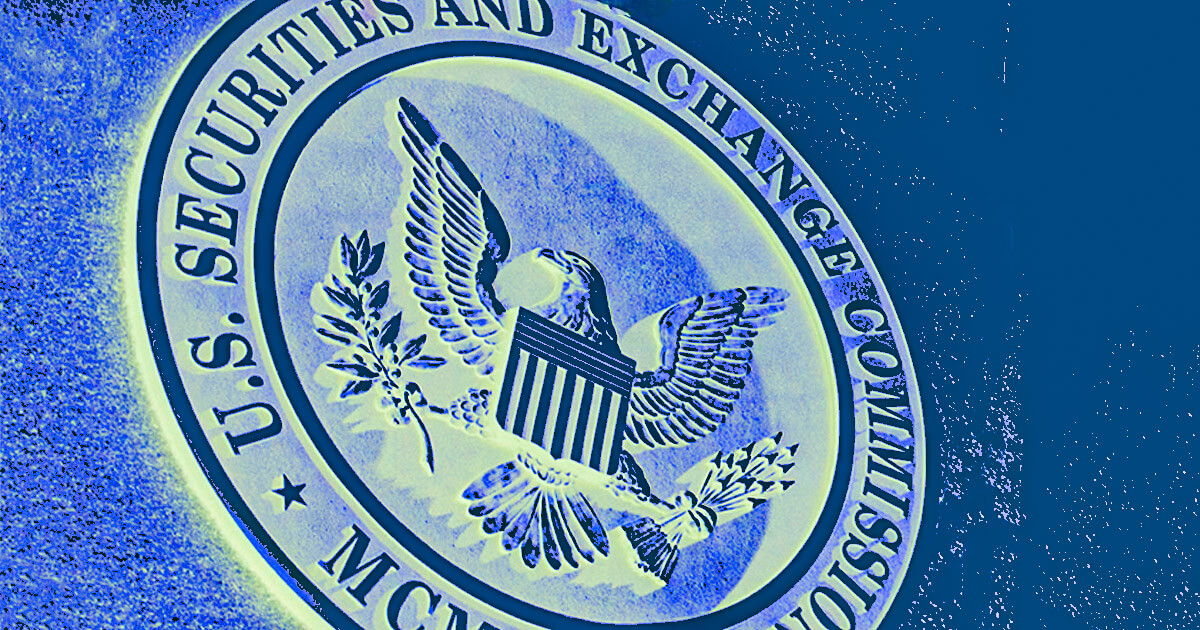Implementing KYC procedures offers several advantages for crypto exchanges. Here are some of the benefits:
- Legal compliance: Adhering to KYC regulations ensures legal compliance and reduces the risk of legal action against the exchange.
- Enhanced customer trust: By demonstrating their commitment to preventing financial crimes and maintaining a secure platform, crypto exchanges can enhance customer trust.
- Secure transactions: KYC procedures help ensure the security of transactions on the exchange.
Furthermore, robust KYC measures contribute to market stability and enhance the reputation of the crypto industry. By reducing the likelihood of fraudulent activities, money laundering, and other illicit financial activities, KYC creates a more secure and reliable atmosphere, thereby attracting more customers and augmenting the exchange’s reputation. Even a bitcoin casino might want you to go through KYC these days.
Legal Compliance and Reduced Risk
By adhering to KYC regulations, exchanges can achieve the following benefits:
- Reduce legal risks
- Demonstrate commitment to preventing financial crimes
- Ensure compliance with regulatory requirements and anti-money laundering (AML) laws
- Reduce the possibility of legal action
- Preserve their reputation
Through the implementation of comprehensive KYC checks, organizations can:
- Reduce the likelihood of fraudulent activities
- Prevent money laundering
- Prevent terrorist financing
- Prevent other illicit financial activities
This not only helps to maintain a secure and transparent environment for customers to trade cryptocurrencies, but also contributes to the overall stability and value growth of the market.
Enhanced Customer Trust and Security
KYC procedures help build customer trust by ensuring the security and transparency of transactions on the exchange. Exchanges with comprehensive KYC measures, such as customer identification and verification, risk assessment and management, and ongoing monitoring and reporting, demonstrate their recognition of applicable compliance regulations and their commitment to adhering to them.
This serves to establish trust between customers and the exchange, as customers are cognizant that their data is being securely stored and safeguarded. By offering a secure and transparent platform for customers to transact on, crypto exchanges can attract and retain more customers, ultimately contributing to the growth and success of their business.
Improved Market Stability and Reputation
Implementing robust KYC measures contributes to market stability and enhances the reputation of the crypto industry. By aiding in the prevention of illegal activities, KYC creates a more secure and reliable atmosphere, thus contributing to the stability and value growth of the market.
Moreover, as the reputation of the crypto industry improves, more businesses and individuals are likely to adopt cryptocurrencies and support their growth. This, in turn, can lead to increased adoption and acceptance of cryptocurrencies in the mainstream financial world, further solidifying their place in the global economy.
Challenges and Risks Associated with KYC in Crypto
While KYC offers numerous benefits, it also faces challenges and risks in the crypto world. Privacy and data security are major concerns for customers, as KYC procedures involve collecting sensitive personal information. Compliance with KYC regulations can be costly and resource-intensive for crypto exchanges, especially as requirements evolve and become more stringent. That’s why many bitcoin casinos prefer to stay anonymous.
Moreover, exchanges must strike a balance between meeting KYC requirements and providing a seamless user experience to attract and retain customers. Despite these challenges, the implementation of KYC procedures remains crucial in maintaining a secure and transparent environment for customers to trade cryptocurrencies and in upholding the integrity of the crypto market.
Privacy and Data Security
Privacy and data security are major concerns for customers, as KYC procedures involve collecting sensitive personal information. To ensure privacy and data security, KYC solutions employ secure procedures to verify the identity of individuals and assess their risk level without unnecessarily sharing their data or compromising its security. Moreover, KYC solution providers face challenges in terms of data protection and adhere to data privacy regulations such as GDPR (General Data Protection Regulation). These regulations strive to safeguard personal data and guarantee that it is collected, stored, and utilized in a secure and responsible manner.
While privacy and data security are crucial, they must be balanced with the need for:
- robust identity verification
- customer risk assessment
- prevention of financial crimes
- ensuring the overall integrity of the crypto market.
Compliance Costs and Resource Allocation
Compliance with KYC regulations can be costly and resource-intensive for crypto exchanges. The expenses associated with KYC can range from $13 to over $130 per check, with banks typically spending an average of $60 million per year on KYC processes. Large financial institutions may expend up to $30 million yearly on KYC when onboarding new clients, and KYC managed services can offer cost savings of 35-60% in comparison to in-house operations.
As KYC requirements evolve and become more stringent, crypto exchanges must allocate significant resources to ensure compliance. Despite the costs and resources required, implementing effective KYC procedures is imperative to uphold legal compliance, minimize risk, and maintain the overall stability and integrity of the crypto market.
Balancing KYC Requirements with User Experience
Exchanges must strike a balance between meeting KYC requirements and providing a seamless user experience to attract and retain customers. The difficulties associated with achieving a balance between KYC requirements and user experience include considerations of privacy and data security, compliance costs, and the allocation of resources.
By instituting KYC procedures that are tailored to the particular needs of the exchange, such as customer identification and verification, risk assessment and management, and ongoing monitoring and reporting, exchanges can ensure a balance between regulatory compliance and user experience.
Alternatives to Traditional KYC in Crypto
For those who prioritize privacy and control over their digital crypto assets, alternatives to traditional KYC in crypto are available. Decentralized exchanges (DEXs) and non-custodial wallets offer increased privacy and control for users, as they do not require KYC procedures.
These alternatives, known as cryptocurrency exchanges, provide users with the ability to trade and manage their cryptocurrencies without the need for a third-party intermediary, which can be particularly appealing to those who value anonymity and autonomy in their financial transactions.
Decentralized Exchanges (DEXs)
Decentralized exchanges (DEXs) allow users to trade cryptocurrencies without the need for KYC procedures, providing greater privacy and control over their assets. DEXs, as opposed to traditional centralized exchanges, do not require a third-party custodian to maintain customer funds, allowing users to trade directly with one another without the need for an intermediary.
Although DEXs offer increased privacy and control, they may also present challenges and risks, such as lower liquidity and slower transaction times. Nevertheless, for those who prioritize privacy and autonomy in their financial transactions, DEXs can be a viable alternative to traditional crypto exchanges.
Non-Custodial Wallets
Non-custodial wallets enable users to store and manage their cryptocurrencies without the need for KYC, as they are not held by a third party. Users can store their own private keys, granting them full control over their funds without the need for a third-party custodian. Popular non-custodial wallets come in many forms. MetaMask, MyEtherWallet and Trust Wallet are some of the leading choices.
While non-custodial wallets offer increased privacy and control for users, they may also come with their own set of challenges and risks, such as the responsibility of securely storing private keys. Nevertheless, for those who value privacy and autonomy in their financial transactions, non-custodial wallets can be a suitable alternative to traditional KYC procedures.
Summary
In conclusion, KYC procedures play a critical role in the cryptocurrency ecosystem, as they help to ensure legal compliance, prevent financial crimes, and maintain a secure and transparent environment for customers to trade cryptocurrencies. While there are challenges and risks associated with KYC in crypto, such as privacy concerns and compliance costs, the benefits of implementing robust KYC measures far outweigh the drawbacks.
For those who prioritize privacy and control over their digital assets, alternatives such as decentralized exchanges and non-custodial wallets offer increased privacy and autonomy in financial transactions. Ultimately, striking a balance between regulatory compliance and user experience is crucial for the continued growth and success of the crypto market.
Frequently Asked Questions
What does KYC mean for crypto?
Know Your Customer (KYC) is a requirement for financial institutions to verify the identity of their customers before they onboard them. This ensures compliance with the Bank Secrecy Act of 1970 and anti-money laundering regulations, so all cryptocurrency exchanges must apply KYC procedures to their customers.
KYC procedures involve collecting personal information from customers, such as name, address, date of birth, and other identifying documents. This information is then verified against public databases and other sources to ensure the customer is who they are.
Is KYC mandatory for crypto?
Yes, KYC is mandatory for crypto in the U.S., as companies dealing with cryptocurrencies are defined as money service businesses (MSBs) under federal regulations and are subject to the Bank Secrecy Act (BSA).
The BSA requires MSBs to collect and verify customer information, including name, address, date of birth, and other identifying information. This is done to help prevent money laundering and other financial crimes.
Why KYC in crypto?
KYC in crypto is a legal requirement to verify the identity of customers in order to prevent illegal activities such as money laundering, terrorist financing, and tax evasion. It helps safeguard regulated organizations from fraud, corruption, and financial terrorism by informing them about a client’s risk tolerance and financial position.
What are the benefits of implementing KYC procedures for crypto exchanges?
Implementing KYC procedures for crypto exchanges can ensure legal compliance, reduce risk, build customer trust and improve market stability.
What are some alternatives to traditional KYC procedures in the cryptocurrency space?
Alternative solutions for cryptocurrency KYC procedures include decentralized exchanges (DEXs) and non-custodial wallets, providing users with more autonomy over their data and privacy.
These solutions offer users the ability to control their own data and privacy, without having to rely on a third-party custodian. This gives users more control over their financial data and allows them to make more informed decisions about their investments.
Credit: Source link















































